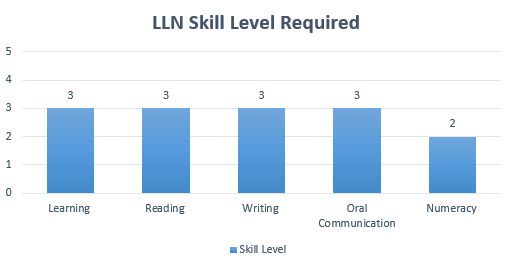Your RSG (Responsible Service of Gambling) course will teach you to deal with gambling-related incidents, provide a responsible gaming environment, assist customers to gamble within their limits, and help those who may have a gambling problem. As a professional in this industry it’s important you understand some of the key facts about gambling in Australia.
As an employee in the gaming and betting industry, it is your responsibility to enforce the RSG legislation. You will come across a wide range of scenarios within your place of employment, and you will be required to make judgment calls and provide assistance where appropriate. Before entering into the profession, or to keep abreast of the changing landscape, it’s important to understand what gambling in Australia really means.
What does gambling in Australia look like?
Gambling takes on many different forms, both online and offline. The more popular forms of gambling in Australia include electronic gaming machines (pokies), casino based games such as poker and roulette, lotteries, scratchies and online betting, particular racing and sports.

In 2010 approximately 70% of all Australian’s gambled in one way or another, from the one-off punt on the Melbourne Cup to the habitual problem gambler at the local TAB. Collectively we spent over $19 billion in 2008-09, with $12 billion of that on pokie machines alone.
Does Australia have a gambling problem?
The reality is Australia leads the developed world for gambling losses, averaging $1,279 per adult gambler in 2014, just edging out Singapore ($1,243) and well ahead of the U.S in third ($705). The average problem gambler loses $21,000 per year, with 115,000 Australians classified as ‘problem gamblers’. A further 280,000 Australians are thought to be at ‘moderate risk’, and on their way to potentially becoming problem gamblers.
Are pokies the biggest issue for problem gamblers?
Regular pokie players are incredibly vulnerable to addiction with one in six classified as a problem gambler. Surprisingly it’s those aged 18-24 who spend more on pokie machines than any other age group, and 90% of women who are deemed problem gamblers identify pokie machines as the cause of their addiction.
But it’s not surprising given the sheer volume of pokie machines in Australia. Despite coming 53rd in terms of population, Australia is way out in front when it comes to pokie machine numbers. One-fifth of the world’s pokie machines are in Australia, easily having more per head of capita than anywhere else on earth, including gambling Mecca’s such as Las Vegas and Macau.
While pokie machines account for 60-65% of all gambling revenue, most Australians don’t actually play them. Almost three-quarters of Australians claim not to play them in any given year, which is surprising given they account for 75-80% of all problem gamblers.
What is the impact of gambling on society in general?
There are two sides to every story. While the cost to individual gamblers can be extraordinarily high, and the impact to the Australian taxpayer was $4.7 billion in 2010, the gaming industry is also positive in many ways. For example:
- State tax revenue from gambling is between 4% (WA) and 13% (Victoria) of total revenue, money needed for countless statewide services such as school, hospitals and infrastructure.
- The online wagering and sports betting industry alone employs over 1,000 people, pays more than $100 million to the sport and racing industries in fees, and $100 million per year in taxes.
- In 2009, hotels with gambling employed 70,000 people, clubs with gambling employed 60,000 people, and casinos employed 20,000 people.
Enforcing RSG legislation reduces the social impact of problem gambling
Only 15% of problem gamblers seek help, but as an employee in the gambling industry, one of your roles is to identify problem gamblers and help them to address their issues. By doing so you could be having an incredibly positive influence on their lives, and the lives of those around them.
The impact of problem gambling isn’t just felt by the gambler, but also by 5-10 other people in their lives. Problem gamblers are:
- Six times more likely to be divorced than gamblers who don’t have a problem
- Four times more likely to have a drinking problem
- Four times more likely to be a daily smoker
- Ten times more likely to have children who grow up to be problem gamblers
Studying an RSG online (SITHGAM201 – Provide responsible gambling services) course will provide you with the required skills and knowledge to recognise gambling issues in individuals, and provide information to connect problem gamblers with gambling support services. The difference you make to a person’s life could be profound, even beyond what you may know or even realise.



